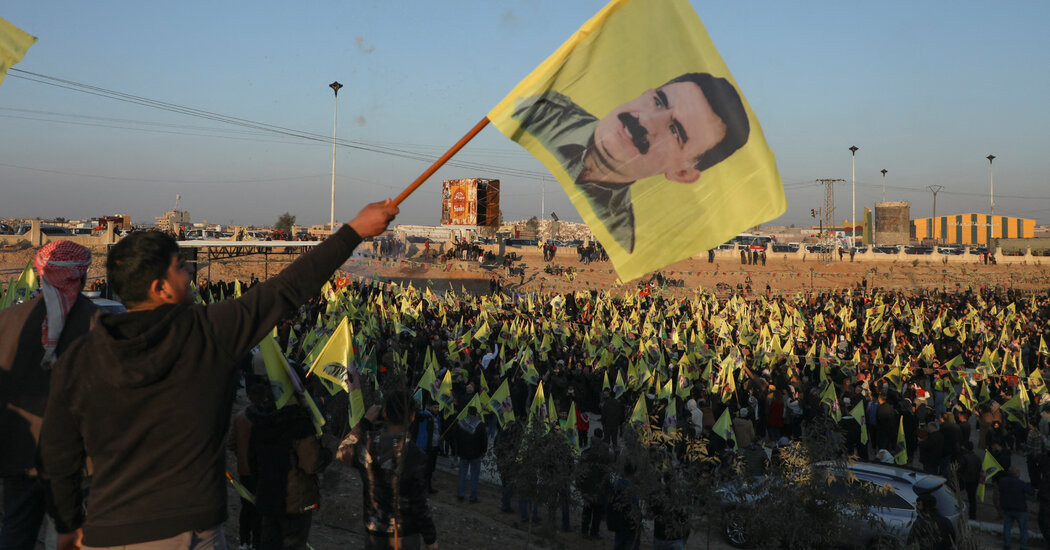

The Kurdistan Workers’ Party, or P.K.K., said on Monday that it would lay down its arms, a decision that could reverberate across neighboring countries.
A Kurdish group that has waged a bloody insurgency against the Turkish state for four decades said on Monday that it would lay down its arms and end the conflict, a decision that could reverberate across neighboring countries.
The announcement by the Kurdistan Workers’ Party, known by its Kurdish acronym, P.K.K., came a few months after its imprisoned leader, Abdullah Ocalan, urged the group to disarm and disband. In his February message, he said the P.K.K.’s armed struggle had outlived its initial purpose.
The P.K.K. began as a secessionist group that sought to create an independent state for Turkey’s Kurdish minority. More recently, it has said that it sought greater rights for Kurds inside Turkey.
In a statement on Monday, the group said it had “carried the Kurdish issue to a level where it can be solved by democratic politics, and the P.K.K. has completed its mission in that sense.”
The group said Mr. Ocalan should lead the process of disarming and it called on Turkey’s Parliament to be part of it.
The decision could end one of the most enduring security problems in Turkey and deliver a significant political victory to President Recep Tayyip Erdogan.
The move could end a conflict that has claimed more than 40,000 lives.
The P.K.K.’s declaration could also have profound influence over other Kurdish militias, particularly in Syria, and shift regional dynamics beyond Turkey’s borders.
The Kurds — an ethnic group of roughly 40 million — are spread across Turkey, Syria, Iran, and Iraq. They were promised their own nation by world powers after World War I and have since launched various rebellions to claim that unfulfilled promise.
In nearly every country where they live, Kurds have faced state-sponsored suppression of their language and culture.
It was not immediately clear how the decision would affect the P.K.K. bases hidden in the mountainous areas of Iraq’s northern Kurdish region. Turkey has repeatedly bombarded P.K.K. strongholds in northern Iraq, as well as the group’s offshoot controlling the northeastern regions of Syria, branding them a terrorist threat near its borders.
Turkish officials have insisted publicly that the government offered no concessions to the P.K.K. to persuade it to disarm. But officials from Turkey’s main pro-Kurdish party have expressed hope that the government would expand cultural and educational rights for Kurds.
Safak Timur contributed reporting.



